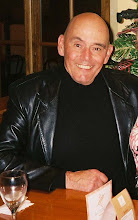Talk about setting up a bright, highly competent, loyal, nice guy for failure.
When Barack Obama named former Clinton chief of staff Leon Penatta to run the Central Intelligence Agency yesterday, he picked a man whose biggest plus is having loudly protested the agency’s use of torture including waterboarding and other “enhanced interrogation techniques.” He also chose a man who has deep government experience, a clear understanding of intelligence agency budgets, and skill at managing a bureaucracy.
What Panetta doesn’t have is the foggiest notion about the arcane inner workings and culture of The Company, which can be as complex, subtle, unfathomable and biting as the aristocratic society depicted in Brideshead Revisited.
“One of two things will happen,” an old friend replied this morning to an e-mail I sent after the announcement. The man spent more than 25 years at the CIA, sometimes travelling under false passports, sometimes analysing disparate bits of incoming intelligence behind a desk at headquarters, sometimes running a foreign station. “Either (Penatta) will figure things out quickly and adapt to the culture while he tries fixing it, or it will eat him alive. But, generally, outsiders don’t do well if they’re parachuted into top jobs at Langley.”
The Bush 41 Factor
Yesterday, in boosting Penatta’s likely chances for success, some commentators pointed to the tenure of George H. W. Bush as CIA director as an example of how an “amateur” can grasp the reins of the agency firmly and succeed. Indeed, Bush 41’s time at Langley was so well regarded by the nation’s intelligence community that the CIA’s sprawling, multi-building campus in suburban Virginia bears his name in tribute.
But Bush the Elder wasn’t exactly an amateur.
For one thing, both the Bush and Prescott families had long ties to the secret world, dating back before the days of the OSS in World War 2. For another, besides heading the CIA, Bush Senior was ambassador to Japan. The Tokyo embassy houses what traditionally is the largest CIA station in the Pacific, charged with monitoring China and North Korea. In his position, Poppy Bush worked closely with a wide range of agency types during his tenure in Tokyo, often involved in decisions about which bits of intelligence to pass on and how much local analysis should go in a report to headquarters.
In short, G. H. W. Bush knew the people, the operation and the culture.
Restoring Confidence
Working Penatta’s his favour is that career officers at the CIA know Panetta’s first task is to restore morale, which was devastated during the Bush years because intelligence was so heavily politicized.
His second job is to ensure everyone knows that the Obama White House wants their best work, unslanted and unbiased, and that the likelihood is nil that Vice President Joe Biden will be looking over their shoulders constantly as was Dick Cheney, Scooter Libby and David Addington’s practice.
If Panetta can accomplish these twin undertakings in the first year on the job, he’ll buy himself some room to learn – and manoeuvre his way through – the CIA’s Byzantine mores and culture.
“People will be very suspicious at first,” I am told by another intelligence community source.
“They won’t be willing to give him the benefit of the doubt," she adds "Hopefully, he’ll work fast on rebuilding confidence of officers in The White House and DNI (Director of National Intelligence) so he can get on with the real job ensuring the agency produces the best intelligence we can come up with.”
Tom Degan
1958-2023
To all Tom’s faithful readers of the Rant, we are sad to announce that he
passed away on December 7th, 2023. Thank you so much for th...

